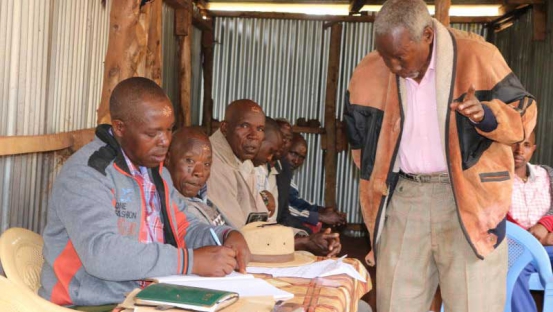×
The Standard e-Paper
Smart Minds Choose Us

When Karwitha Isaac's land dispute took too long to be determined at the Land and Environment Court in Milimani, Nairobi, she withdrew it and filed the matter with the Njuri Ncheke elders' court.
Ms Karwitha says she was disappointed the case was taking too long to be concluded, hence her decision to transfer it to the elders, where justice is swifter.